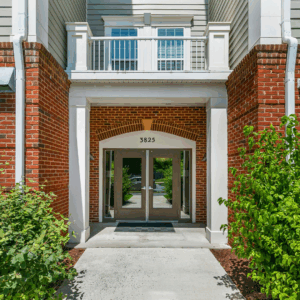
By Tyler Plack
Tyler Plack is the President of South River Mortgage. Tyler holds an active FHA Direct Endorsement (DE) underwriting certification and is the author of The Retirement Solution: Maximizing Your BenefitTyler is a seasoned entrepreneur and real estate investor renowned for his expertise in reverse mortgages and his commitment to addressing seniors' equity challenges. Tyler brings a unique perspective to his ventures, having built several successful companies throughout his career. His insights are frequently sought by industry publications, where he is recognized for his vast knowledge in the realm of reverse mortgages.
An avid investor in income-producing properties, Tyler is dedicated to helping seniors navigate their financial needs with compassion and expertise. When Tyler is not helping solve America's retirement crisis, he is a skilled pilot flying airplanes for fun.
Short answer: Yes—sometimes.
Many condo owners assume reverse mortgages only work for single-family homes. That’s not true. Condos can qualify—but the rules are a little different, and the path depends on your specific situation.
The good news?
There are multiple ways a condo can still work.
Let’s break it down in plain English.
Why Condos Are Treated Differently
With a condo, you don’t just own your unit—you’re also part of a larger association. Because of that, lenders need to make sure the entire building is financially stable, properly insured, and legally sound.
That extra layer is why condos feel “harder”… but it doesn’t mean they’re off the table.
The 3 Main Ways a Condo Can Qualify
Option 1: The Condo Is FHA-Approved
This is the easiest path.
If your condo association is already approved by the FHA, getting a reverse mortgage is usually straightforward. Most of the work happens behind the scenes, and you won’t need to chase down paperwork.
Some condo associations get approved and later let that approval expire, so it’s always worth checking—even if you’re not sure.
If your condo is approved, great. This is the smoothest route.
Option 2: Single-Unit Approval (Only Your Condo Is Reviewed)
If the whole building isn’t FHA-approved, don’t panic.
In many cases, only your unit can be reviewed and approved. This is called a single-unit approval.
What this means for you:
● Your lender reviews the condo’s finances, insurance, and rules
● You may be asked to help request documents from the association
● Most associations already have these documents available
This step sounds intimidating, but it’s very common—and manageable with the right lender guiding the process.
Option 3: You’re Refinancing an Existing Reverse Mortgage
This is the easiest scenario of all.
If you already have a reverse mortgage on your condo and want to refinance it, the condo usually does not need to be re-approved.
That means:
● No condo approval headaches
● No restarting the process
● A much smoother refinance
For many condo owners, this is a huge relief.
Are You Eligible for a Reverse Mortgage?
(Find out in 60 seconds)
What Lenders Are Really Looking For (In Simple Terms)
Instead of listing technical rules, here’s what matters from a homeowner’s point of view:
- You qualify financially for the loan
- Most units are owner-occupied (not rentals)
- The condo association is financially stable
- There’s proper insurance in place
- No major financial or legal trouble with the building
If those boxes are checked, your condo may be eligible—even if it wasn’t approved before.
What About Non-FHA Reverse Mortgages?
Some reverse mortgage programs don’t follow FHA rules at all.
For example, certain proprietary loans (like HomeForLife) use a much simpler condo review—often just a short questionnaire completed by the association, with no heavy documentation required.
This can be a great option if FHA rules feel too restrictive.
What This Means for You
Here’s the key takeaway:
Not being FHA-approved does NOT automatically disqualify your condo.
Many condo owners assume the answer is “no” before ever asking. In reality, it’s often just a matter of choosing the right path and working with a lender who knows how to navigate condo approvals.
Frequently Asked Questions
My condo association is hard to work with—does that kill my chances?
Not necessarily. Many lenders can handle most of the communication directly with the association. And in some cases, alternative loan options avoid this issue altogether.
What if another lender already told me my condo won’t work?
That happens a lot. Condo eligibility is often misunderstood or oversimplified. A second opinion can make a real difference.
Is this going to take forever?
Not usually. FHA-approved condos move quickly, refinances are even faster, and single-unit approvals are often simpler than people expect when handled correctly.
What’s the best next step?
Have your situation reviewed before assuming anything. A quick look at your condo, age, and goals can usually tell us which path—if any—makes sense.

Thinking About a Reverse Mortgage on Your Condo?
Planning for retirement is stressful enough—your housing options shouldn’t add to it.
At South River Mortgage, we’ve helped many condo owners navigate this exact situation. If you’re curious whether your condo could qualify, we’re happy to review your options and give you a clear answer—no pressure, no guesswork.
Call (844) 230-6679 or start with a quick eligibility check to see what may be possible.




